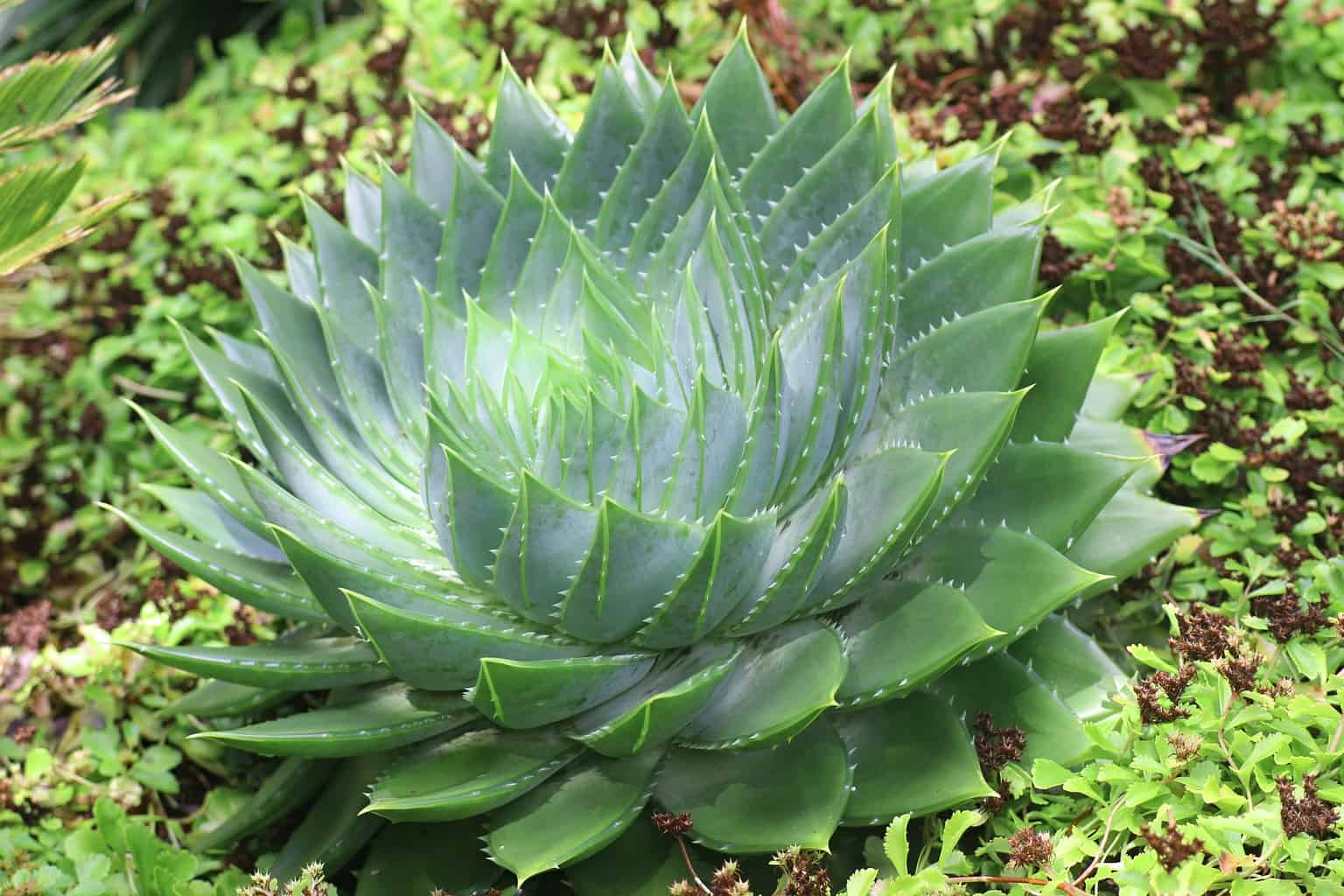
How To Grow Spiral Aloe Aloe Polyphylla Make Your Home Look Amazing
Features of The Spiral Aloe. These succulents feature tightly packed leaves that grow in a fascinating rosette spiral pattern. These leaves grow in a total of five rows. Each plant will have around 150 leaves. They need to grow at least 8 inches in diameter to begin spiraling. When fully grown, they reach a diameter of up to 2 feet.
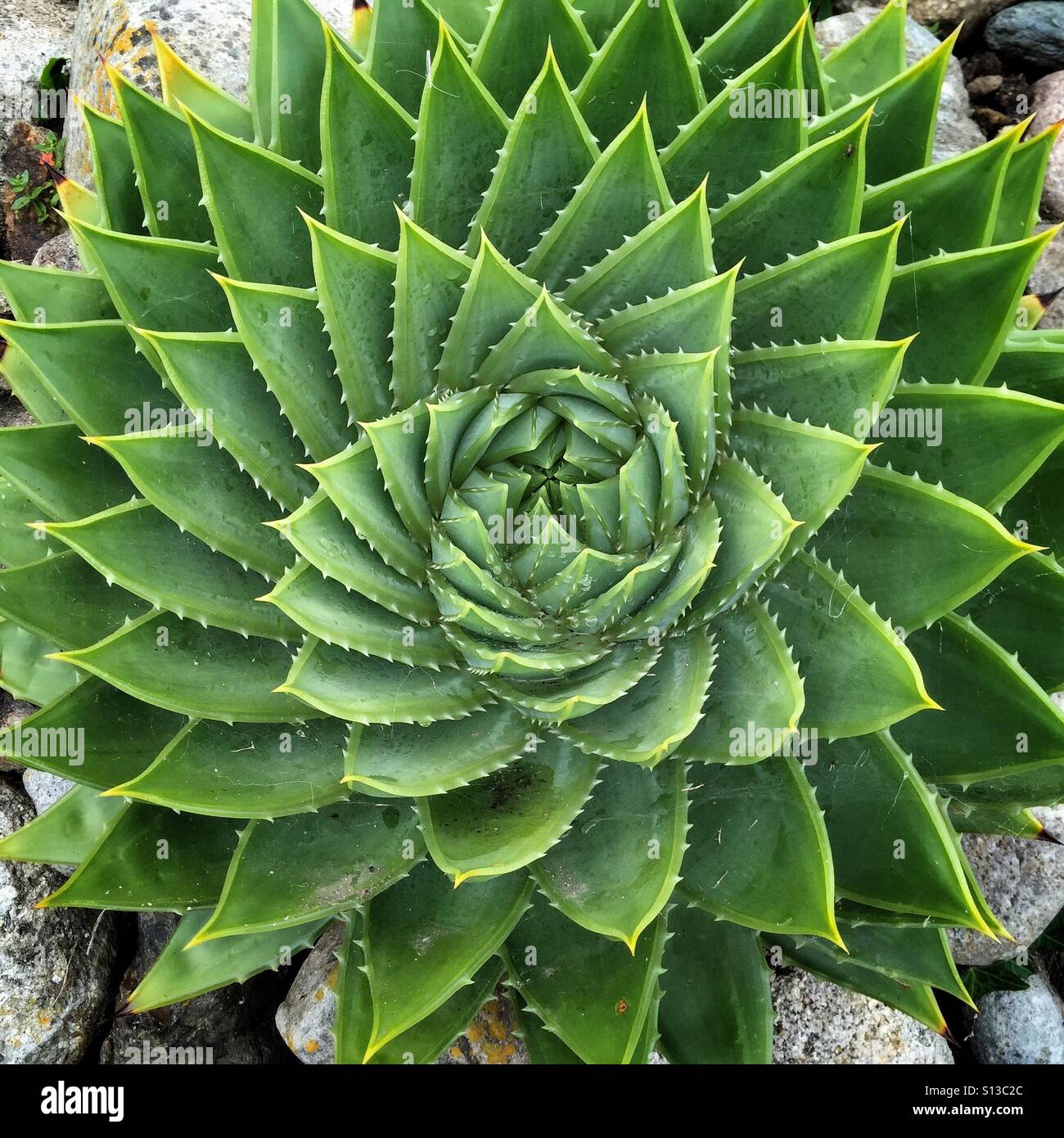
Aloe polyphylla spiral plant in rocks Stock Photo Alamy
Spiral Aloe. Fascinating, Aloe polyphylla (Spiral Aloe) is a compact evergreen succulent valued for its foliage arranged in a perfect spiral pattern. The fleshy gray-green leaves form a tight rosette that becomes a beautiful spiral, either clockwise or counterclockwise, as the plant ages. A plant can count up to 150 leaves geometrically.
:max_bytes(150000):strip_icc()/spiral-aloe-guide-5191042-hero-326b4be44f4243fa8bac045912e8fb4a.jpg)
Spiral Aloe (Aloe Polyphylla) Care & Growing Guide
A stunning succulent garden specimen with a rosette of fleshy, spiny, gray-green leaves that forms a fascinating clockwise or counterclockwise geometric spiral pattern as the plant ages. A must-have for the succulent collector! A wonderful addition to dry borders and rock gardens. Excellent drainage is a must. Evergreen. Water when soil is.
Aloe polyphylla (Spiral Aloe) Surreal Succulents
Looking for Polyphylla Aloe? We have almost everything on eBay. No matter what you love, you'll find it here. Search Polyphylla Aloe and more.

100Pcs Aloe Polyphylla Seed Garden Succulents Household Office Yard
Aloe polyphylla (Spiral Aloe) Aloe polyphylla, known as Spiral Aloe, is a captivating succulent with foliage arranged in a perfect spiral pattern. The gray-green leaves form a tight rosette that spirals either clockwise or counterclockwise. Each rosette can have up to 150 leaves with white to pale-green spines along the edges.

Aloe Polyphylla Spiral Aloe Smart Seeds Emporium
Spiral aloe (Aloe polyphylla) is instantly recognizable, and nothing compares to its symmetrical, evenly-spaced rosette of thick, succulent leaves.The dark gray-green leaves form a tight spiral that might grow clockwise or counter-clockwise in five rows. The margins are lined with sharp teeth and end with a purplish-brown, sharp tip.

Aloe polyphylla Wholesale Nursery Nurseries in Melbourne, Sydney
To propagate an Aloe Polyphylla through offsets, follow these steps. - Remove the offset (s) - Clean the bottom part of the offset (s) - Allow the offset (s) to dry in a shaded place until it hardens. - Once the offset (s) is hard and has calluses, plant it in a container with well-draining soil or succulent potting mix.

Aloe polyphylla (Spiral Aloe) World of Succulents
General Care for Aloe polyphylla "Spiral Aloe". "Spiral Aloe" is a rare succulent, with rosettes formed by five rows of leaves. Each row contains between 15 and 30 sharp leaves, creating a rosette that can grow up to 1 foot (31 cm) across. Aloe polyphylla blooms in the spring, with pink-orange flowers.
Aloe polyphylla (Spiral Aloe) Surreal Succulents
The leaves of Spiral Aloe are wide and have sharply-pointed tips that are purplish-brown in color. The succulent produces salmon-pink colored flowers in the spring and early summer. Aloe polyphylla originates from the Aloaceae family and is native to the Maluti Mountains of Lesotho. It can grow up to 12-inches (30cm) in height.
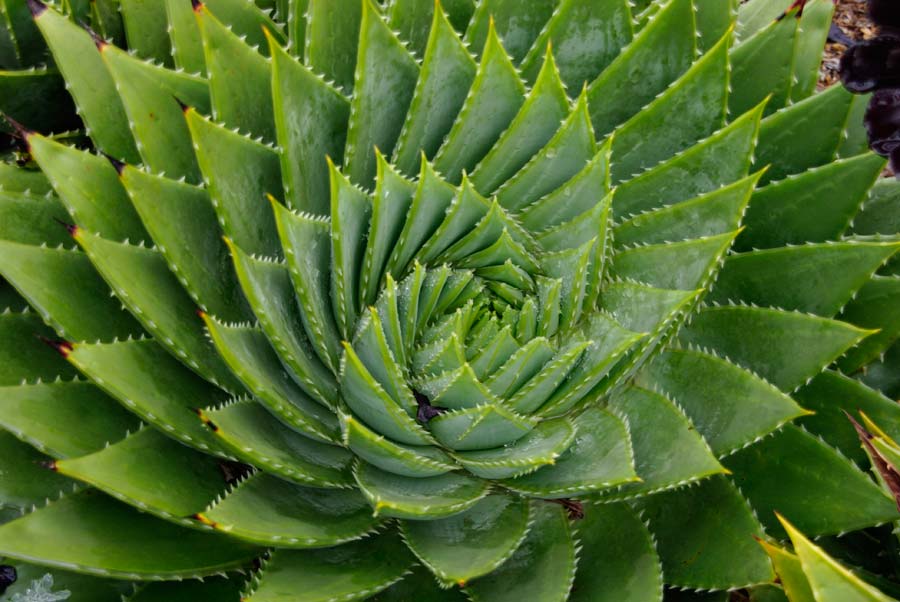
Aloe polyphylla
Aloe polyphylla AL-oh pol-ee-FIL-lah Audio The spine-tipped leaves of this aloe grow in a beautiful spiral; mature plants have five rows of leaves growing either clockwise or counterclockwise. It is very hardy, but will rarely flower. A native of Lesotho, Africa, it is extremely endangered due to overcollecting..
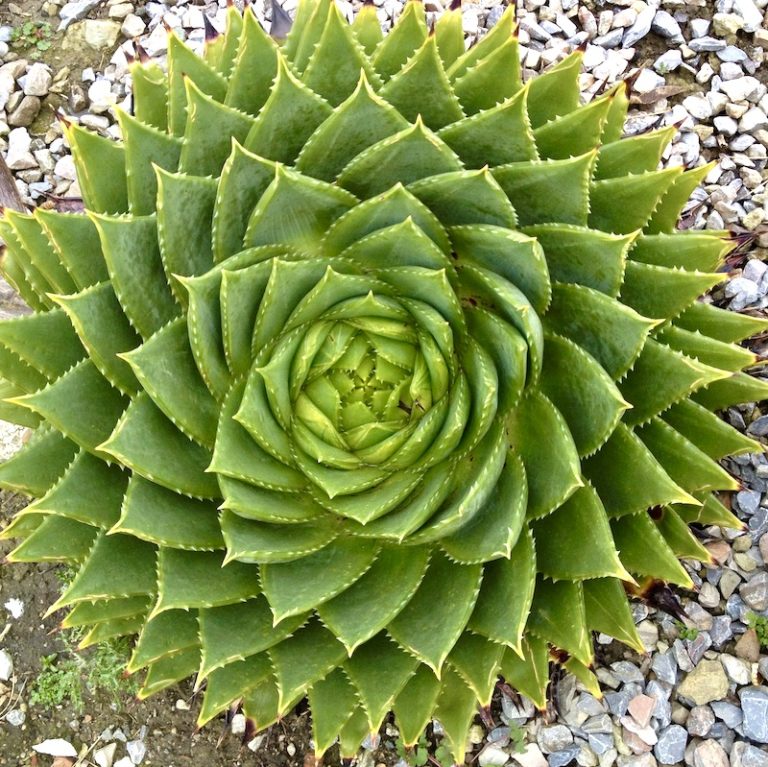
Aloe polyphylla Big Plant Nursery
Aloe polyphylla, or "spiral aloe," is a captivating succulent that grows in a spiral and bears orange flowers. This large, egg-shaped plant (20 to 24 inches round) hugs the ground and features gray-green leaves with purple tips. The mid-sized Aloe aculeata (3 feet tall and wide when mature) grows thick, broad leaves with teeth, or thorns, on.

Aloe polyphylla Wholesale Nursery Nurseries in Melbourne, Sydney
Origin and Habitat: Aloe polyphylla is endemic of the Maluti Mountains of Lesotho, but also reported from the Lesotho border with the Free State and (possibly) from KwaZulu-Natal Drakensberg. Altitude: 2000-2500 m over sea level (but may be found as high as 3000 m ) Habitat: They live in high altitude grassland just below the snow line, mainly on very steep slopes facing North or North-west.
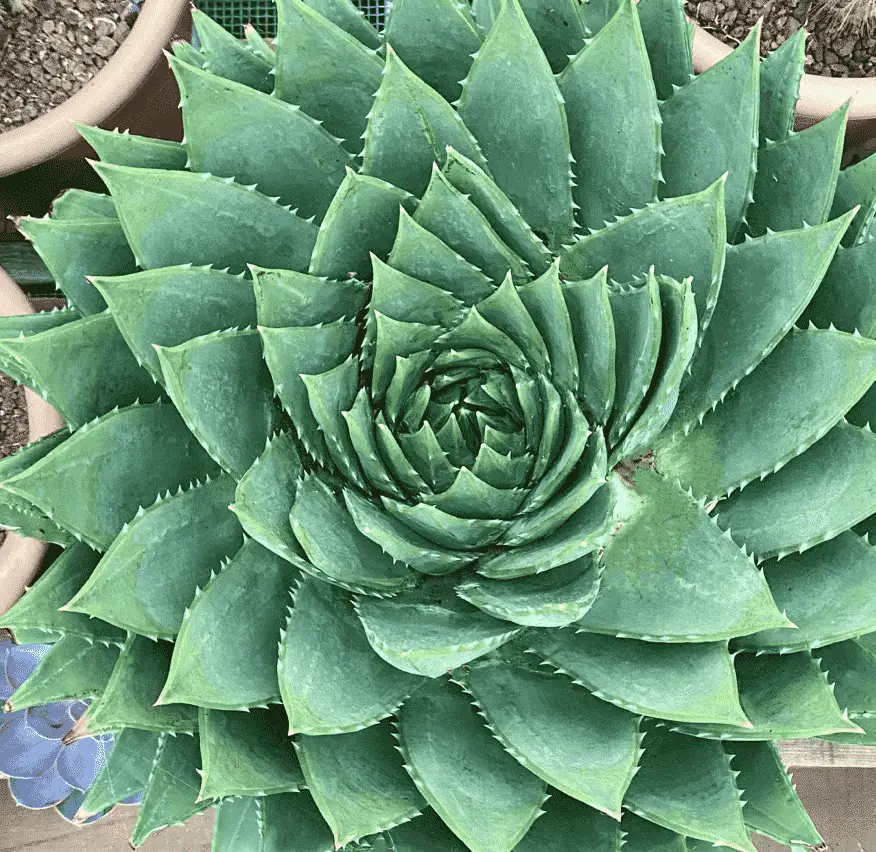
Aloe Polyphylla 'Spiral Aloe' (Guide With Pictures) Succulents Network
The spiral aloe (Aloe polyphylla) is a mesmerizing evergreen succulent in the Aloe genus that is native to South Africa.Its unique spiraling growth habit has made this succulent popular and highly sought after. Thick green leaves with pointed, purplish-brown tips form a compact, symmetrical spiral that can grow clockwise or counterclockwise.

Aloe Polyphylla Grow and Care Guide Plants Spark Joy
Aloe polyphylla. Aloe polyphylla, the spiral aloe, kroonaalwyn, lekhala kharetsa, or many-leaved aloe, is a species of flowering plant in the genus Aloe that is endemic to the Kingdom of Lesotho in the Drakensberg mountains. An evergreen succulent perennial, it is well known for its strikingly symmetrical, five-pointed spiral growth habit.

5x SPIRALE ALOEALOE POLYPHYLLA ALOE ARBORESCENS PIANTE SUCCULENTE
The adult plants are more tolerant of extreme temperatures than the juvenile plants. To cultivate A.p. in low desert areas with 100+ F summer temperatures do not use black plastic containers, ceramic is best to insulate the roots against high temperatures. Morning sun is OK but shade in the afternoon is necessary.

Aloe_polyphylla Giromagi Cactus and Succulents
Aloe polyphylla is a beautiful succulent that forms stemless rosettes of fleshy leaves arranged in a distinctive spiral pattern that can be clockwise or counterclockwise. The rosettes have 75 to 150 leaves, always in 5 rows, and can reach a diameter of 3 feet (90 cm). While the rosettes do not produce offsets, the plant usually forms dense.